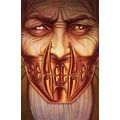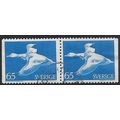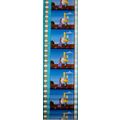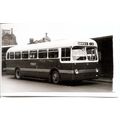Bernkastel-Kues, Germany - market place with Michaelsbrunnen - postcard
- Condition : Used
- Dispatch : 2 Days
- Brand : None
- ID# : 143196683
- Quantity : 1 item
- Views : 123
- Location : United Kingdom

- Seller : justthebook (+1703)
- Barcode : None
- Start : Sat 26 Sep 2015 05:23:11 (EDT)
- Close : Run Until Sold
- Remain : Run Until Sold
Checks/Cheques
 for 1 item(s) edit
for 1 item(s) edit
Shipping Calculator
More Listings from This Seller view all
Seller's Description
- Postcard
- Picture / Image: Bernkastel-Kues - Marketplatz mit Michaelsbruinnen
- Publisher: Rahmel-Verlag
- Postally used: no
- Stamp: n/a
- Postmark(s): n/a
- Sent to: n/a
- Notes / condition:
Please ask if you need any other information and I will do the best I can to answer.
Image may be low res for illustrative purposes - if you need a higher definition image then please contact me and I may be able to send one. No cards have been trimmed (unless stated).
------------------------------------------------
Postage & Packing:
Postage and packing charge should be showing for your location (contact if not sure).
No additional charges for more than one postcard. You can buy as many postcards from me as you like and you will just pay the fee above once. Please wait for combined invoice. (If buying postcards with other things such as books, please contact or wait for invoice before paying).
Payment Methods:
UK - PayPal, Cheque (from UK bank) or postal order
Outside UK: PayPal ONLY (unless otherwise stated) please. NO non-UK currency checks or money orders (sorry).
NOTE: All postcards are sent in brand new stiffened envelopes which I have bought for the task. These are specially made to protect postcards and you may be able to re-use them. In addition there are other costs to sending so the above charge is not just for the stamp!
I will give a full refund if you are not fully satisfied with the postcard.
----------------------------------------------
Text from the free encyclopedia WIKIPEDIA may appear below to give a little background information (internal links may not work) :
*************
Bernkastel-Kues (German pronunciation: [?b???nkast?l'ku?s]) is a well-known winegrowing centre on the Middle Moselle in the Bernkastel-Wittlich district in Rhineland-Palatinate, Germany. The town is a state-recognized health resort (Erholungsort), seat of the Verbandsgemeinde of Bernkastel-Kues and birthplace of one of the most famous German polymaths, the mediaeval churchman and philosopher Nikolaus von Kues (Cusanus).
Bernkastel-Kues lies in the Moselle valley, roughly 50 km (31 mi) from Trier. The greatest elevation is the Olymp (415 m above sea level), and the lowest point (107 m above sea level) lies on the Moselle’s banks. The municipal area totals 23 657 101 m², of which 7 815 899 m² is used for agriculture, thereby making Bernkastel-Kues one of the Middle Moselle’s biggest towns by land area.
The earliest evidence of human habitation (3000 BC) was discovered by archaeologists in Kues. About AD 370, Decimus Magnus Ausonius, the Roman poet and teacher at the Imperial court, wrote his poem Mosella. Adalbero von Luxemburg (d. 1036 or 1037), Provost of the Trier Monastery of St. Paulin, became Lord of Bernkastel in the early 11th century.
In the first half of the 11th century, Bernkastel had its first documentary mention.
At the turn of the 8th century, a geographer described a place called Princastellum. This is said to be evidence of a Roman castellum in the 4th century near today’s Landshut castle ruin. Pointing to this are, among other things, fittings and finds of ceramic and iron underneath the castle.
The 12th-century form of the name, Beronis castellum, was a learned re-Latinization, which was related to Adalbero von Luxemburg. Work was begun on the third castle building under the lordship of Archbishop of Trier Heinrich II of Finstingen.
On 29 May 1291, King Rudolph I of Germany granted Berrincastel town rights. The castle, Burg Landshut, which was built at that time, was given this name only in the 16th century. In 1332, the town rights were reaffirmed by Emperor Louis the Bavarian’s Sammelprivileg (a kind of omnibus decree that dealt with many rights and privileges). Under the terms of the Golden Bull of 1356, Bohemond II became Elector. According to legend, he was brought back to health from a serious illness by a glass of wine, giving rise to the legend of the Berncastler Doctor winery.
In 1401, Nikolaus von Kues, also known by his Latinized name Nicolaus Cusanus, was born in Moselle shipowner Henne Cryfftz’s house, which is well preserved and can be visited. In 1451, the St.-Nikolaus-Hospital, a hospital for the poor, was built.
In 1505, in an Electoral edict from Jakob II, the name Landshut for the archiepiscopal castle crops up for the first time. Emperor Maximilian I spent a night in Bernkastel in 1512 on the way to the Imperial Diet at Trier.
The Plague raged in Bernkastel in 1627, and in Kues in 1641. In 1692, Castle Landshut fell victim to fire and since then it has been a ruin.
From 1794 to 1814, Bernkastel was a cantonal chef-lieu under French rule. At the Congress of Vienna in 1815, Bernkastel and Kues were annexed to the Kingdom of Prussia. In 1821 Bernkastel became a district seat. In 1848, the Revolution came to Bernkastel as it had to many of the then politically disunited German lands: The black-red-gold flag was hoisted at the town hall and a militia was formed.
The first road bridge between Bernkastel and Kues was built between 1872 and 1874, as was the first railway link in 1882 and 1883. In 1891, Bernkastel marked its 600-year jubilee as a town.
The town in its current form came into being on 1 April 1905 through the merger of the town of Bernkastel with the winemaking village of Kues across the river. In 1926 there arose great unrest among winemakers along the Moselle, and the financial office in Bernkastel and the customs office in Kues were stormed.
On Kristallnacht (9 November 1938), there were great riots against Jewish inhabitants, and the synagogue was destroyed.
In 1946, the first democratic elections after the Second World War were held. Hans Weber became mayor.
In 1970, Andel and Wehlen were amalgamated with the town. With administrative reform in Rhineland-Palatinate, the Verbandsgemeinde of Bernkastel-Kues was formed through the merger of the Ämter of Bernkastel-Land, Lieser, Mülheim, Zeltingen and the town of Bernkastel-Kues.
In 1997, the Burgbergtunnel, a traffic bypass, had its festive opening.
Bernkastel-Kues was the host town for the annual Intercamp Camporee for the year 2008. Scouting councils from the USA, Canada, the Czech Republic, Germany, France, and many other European countries attended the event on May 9–11.
In 2000 began the partnership between Bernkastel-Kues and Karlovy Vary in the Czech Republic. In 2005, the town celebrated the centenary of the merger of Bernkastel and Kues, and the municipality became a “climatic health resort” (Heilklimatischer Kurort).
type=printed
city/ region=rhineland-palatine
period=post-war (1945 - present)
postage condition=unposted
number of items=single
size=continental/ modern (150x100mm)
Listing Information
| Listing Type | Gallery Listing |
| Listing ID# | 143196683 |
| Start Time | Sat 26 Sep 2015 05:23:11 (EDT) |
| Close Time | Run Until Sold |
| Starting Bid | Fixed Price (no bidding) |
| Item Condition | Used |
| Bids | 0 |
| Views | 123 |
| Dispatch Time | 2 Days |
| Quantity | 1 |
| Location | United Kingdom |
| Auto Extend | No |


















